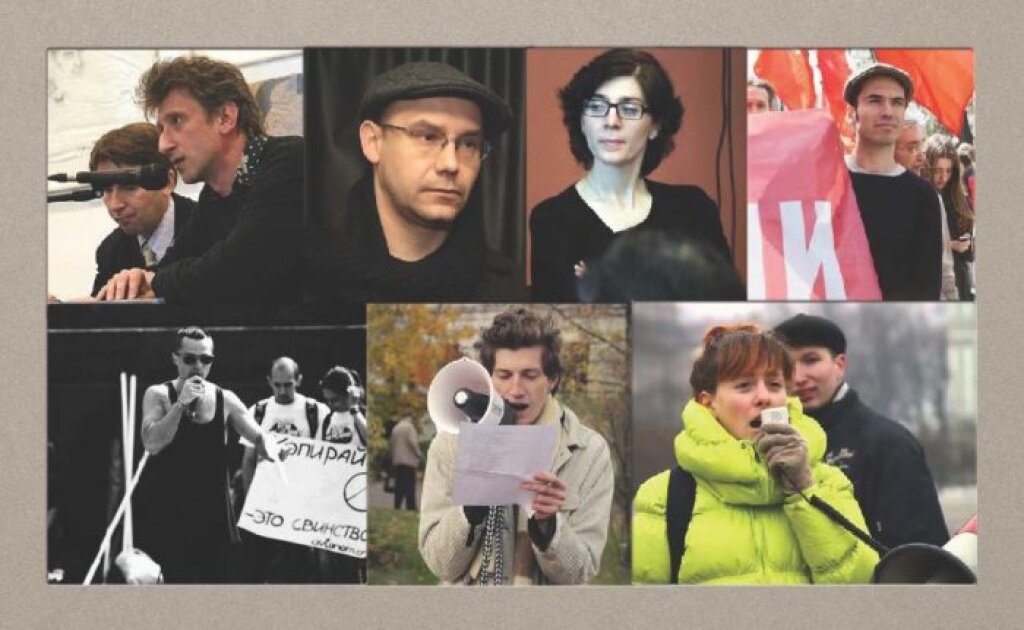On Tuesday, April 9, the Jordan Center had the great honor of hosting some of the most distinguished experts of Russian-American relations, as Ambassador Jack Matlock, Senator Bill Bradley, Mr. Boris Jordan, and Professor Stephen Cohen shared perspectives on the relationship between the two countries during the last two decades. Coming from different backgrounds and disciplines, there was both optimism and pessimism to trace in each of the discussants’ approaches.
Ambassador Matlock started the discussion with arguing that we are not on the edge of a new cold war, even though one might get a different impression through the rhetorics used in today’s media. The Ambassador also pointed out that most of the disagreements that exist between the U.S. and Russia are based on misunderstandings which have developed into political myths in both countries. In addition, Ambassador Matlock warned against viewing world politics in light of bipolar superpower dynamics, as such a viewpoint is potentially destructive. As the Ambassador wisely phrased it: “A superpower might have the resources to destroy a different country, but does not possess the power to build a new one.” With this, Matlock also emphasized the importance of not turning to violence or military actions in search of solutions to abstract problems.
Mr. Boris Jordan focused on Russia’s attitudes towards the United States, and pointed out that any problematic issues that might exist between the two are not at all based in ideological differences. Providing a possible explanation to why Russia’s attitude towards the United States has cooled during the last decade, Mr. Jordan noted how President Putin’s personal expectations to Russian-American relations were not met during his first two periods of presidency. The fact that Russia has now sought a marked further east, as well as in Africa, should therefore not be interpreted as an ideological statement towards the U.S., but rather as a natural consequence of the Russians seeking an economic marked which they feel can be trusted.
Professor Stephen Cohen took a different approach from both Ambassador Matlock and Mr. Jordan, as he argued that there is indeed an increase in New Cold War Rhetorics, and that the disagreements between Russia and the U.S. can be approached as ideological. However, Professor Cohen pointed out that an important reason for this is that very little has been done on the American side to improve Russian-American relations. In fact, the political approach towards Russia is the same as it was twenty years ago, even though Russia’s role in the world has changed drastically since the 1990s. Cohen reached out for a stronger leadership and for new voices who are brave enough to make the change needed to improve the relationship between the two countries.
Although not at all ignoring political issues in his declamation, Senator Bill Bradley focused on how we must never forget the people aspect of international relations. The tragedy of the post Cold War-era, according to Bradley, is that the U.S. never reached out to Russia, and thus failed to live up to the expectations both Russia and former Soviet states had to the U.S. This impression was shared with the other panelists, as they all uttered dismay with the fact that the U.S. did not capitalize on the open dialogue which followed shortly after 1991. Bradley therefore encouraged what he coins “politics one on one” - where the United States and Russia meet as equals to discuss issues and challenges that both countries are facing.
After all panel discussants had offered well-reflected and useful approaches on how to view and explain Russian-American relations, many of the panel’s listeners posed the big and difficult question: What can be done now? While Senator Bill Bradley urges both countries to come together on a new grand initiative, Mr. Jordan places his faith in younger generations, and hopes young Russians and Americans of today leave old cold war rhetorics behind and instead focus on what our countries have in common. Ambassador Matlock made an interesting point as he addressed how American domestic politics face challenges on their own. In order to solve bigger issues and to improve international relations, it is important to support cooperation across political parties and attitudes, and to see both one's country and the world in a bigger perspective. Indeed, there was a panel consensus for a clearer Russian policy in the United States, and for a more constructive dialogue about Russian-American relations.
Tuesday’s session therefore ended on an optimistic note, as all participants reached out to younger generations and encouraged them to engage in social issues, as well as to increase their knowledge on two great nations in changing.
For additional press coverage of the event:
http://www.runyweb.com/articles/city/ny-news/jack-matlock-at-nyu.html (Aleksei Osipov, RUNYweb)
http://nyunews.com/2013/04/10/russia/ (Kevin Burns, Washington Square News)
http://www.golos-ameriki.ru/content/jordan-center/1639647.html (Mikhail Gudkin, Golos Ameriki/Voice of America)



